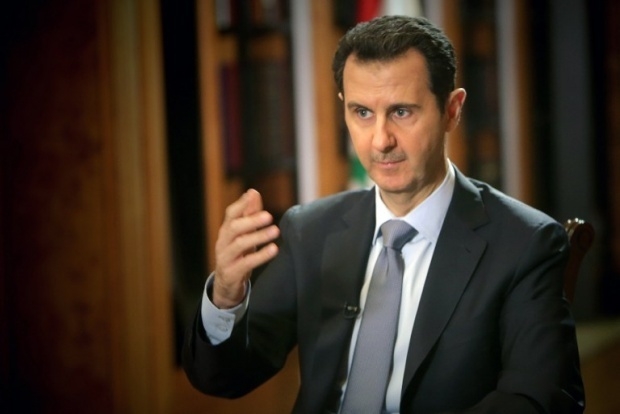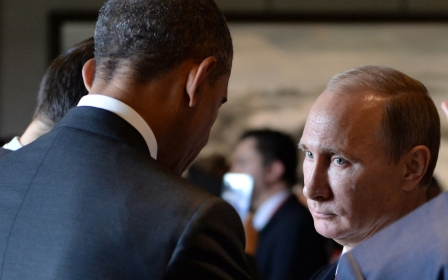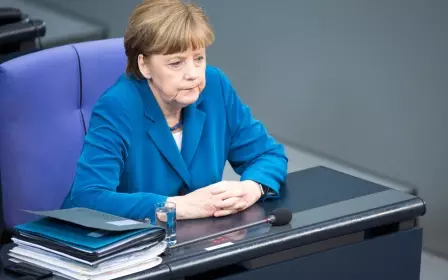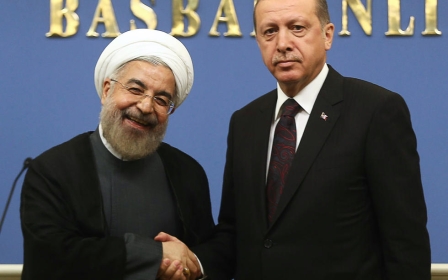Iraq, Russia, Syria and Iran create intelligence alliance to combat IS

Iraq, Russia, Iran and Syria have agreed to set up an intelligence committee in Baghdad, Iraq’s government said on Sunday.
Baghdad said the committee would help harmonise efforts in fighting against the Islamic State (IS) group, despite Washington’s objection to Syria's role.
"It's a committee coordinating between the four countries, with representatives of each country, in the field of military intelligence and aimed at sharing and analysing information," Saad al-Hadithi, a spokesman for Prime Minister Haider al-Abadi's office, told AFP.
He said the cell would focus on "monitoring the movements of terrorists... and degrading their capacity".
Iraq's Joint Operations Command said the deal with Moscow comes amid "growing concern over the presence of thousands of Russian terrorists engaged in criminal acts with Daesh (IS)".
Hadithi did no comment on whether the new committee had already begun to operate.
Damascus and Tehran have not commented on the new alliance, but the Baghdad-based US military spokesman for anti-IS operations took issue with Syrian President Bashar al-Assad government's participation in the new setup.
"We recognise that Iraq has an interest in sharing information on ISIL (IS) with other governments in the region who are also fighting ISIL," Colonel Steve Warren told AFP.
"We do not support the presence of Syrian government officials who are part of a regime that has brutalised its own citizens," he added.
Secretary of state John Kerry also expressed displeasure with the new group.
“I think the critical thing is that all of the efforts need to be coordinated,” Kerry said before meeting Russia’s foreign minister, Sergey Lavrov, in New York.
“This is not yet coordinated. I think we have concerns about how we’re going to go forward, but that’s precisely what we’re meeting on to talk about now.”
The move comes as Moscow boosts its military presence in neighbouring Syria, deploying more troops and warplanes to an air base along with new arms deliveries to Assad's government, a longstanding Russian ally.
The United States has a $500mn programme to train and equip vetted moderates recruited from among the rebels fighting Assad, but it has faced repeated setbacks.
The US thinks that IS can be pummelled with US-led airstrikes and regional ground forces. The US has stated they have trained over 5,000 moderate Syrian rebels.
However, the Pentagon recently released a report that dramatically undercut those claims. In the report, some rebels have surrendered gear and vehicles to the al-Qaeda linked al-Nusra Front militia.
“It turns out that only 60 of these fighters have been properly trained, and as few as four or five people actually carry weapons,” Russian President Vladimir Putin said. “The rest of them have deserted with the American weapons to join ISIS,” he added, referring to IS.
Western European powers have recently softened their stance categorically rejecting a role for Assad in any political solution to the conflict in Syria.
On Monday, Putin will address the UN General Assembly in New York to outline his plans for Syria, notably the idea of expanding a coalition, which would include Assad's army, to fight IS.
Iranian President Hassan Rouhani, also in New York, told CNN television: "I think today everyone has accepted that President Assad must remain so that we can combat the terrorists."
New MEE newsletter: Jerusalem Dispatch
Sign up to get the latest insights and analysis on Israel-Palestine, alongside Turkey Unpacked and other MEE newsletters
Middle East Eye delivers independent and unrivalled coverage and analysis of the Middle East, North Africa and beyond. To learn more about republishing this content and the associated fees, please fill out this form. More about MEE can be found here.




